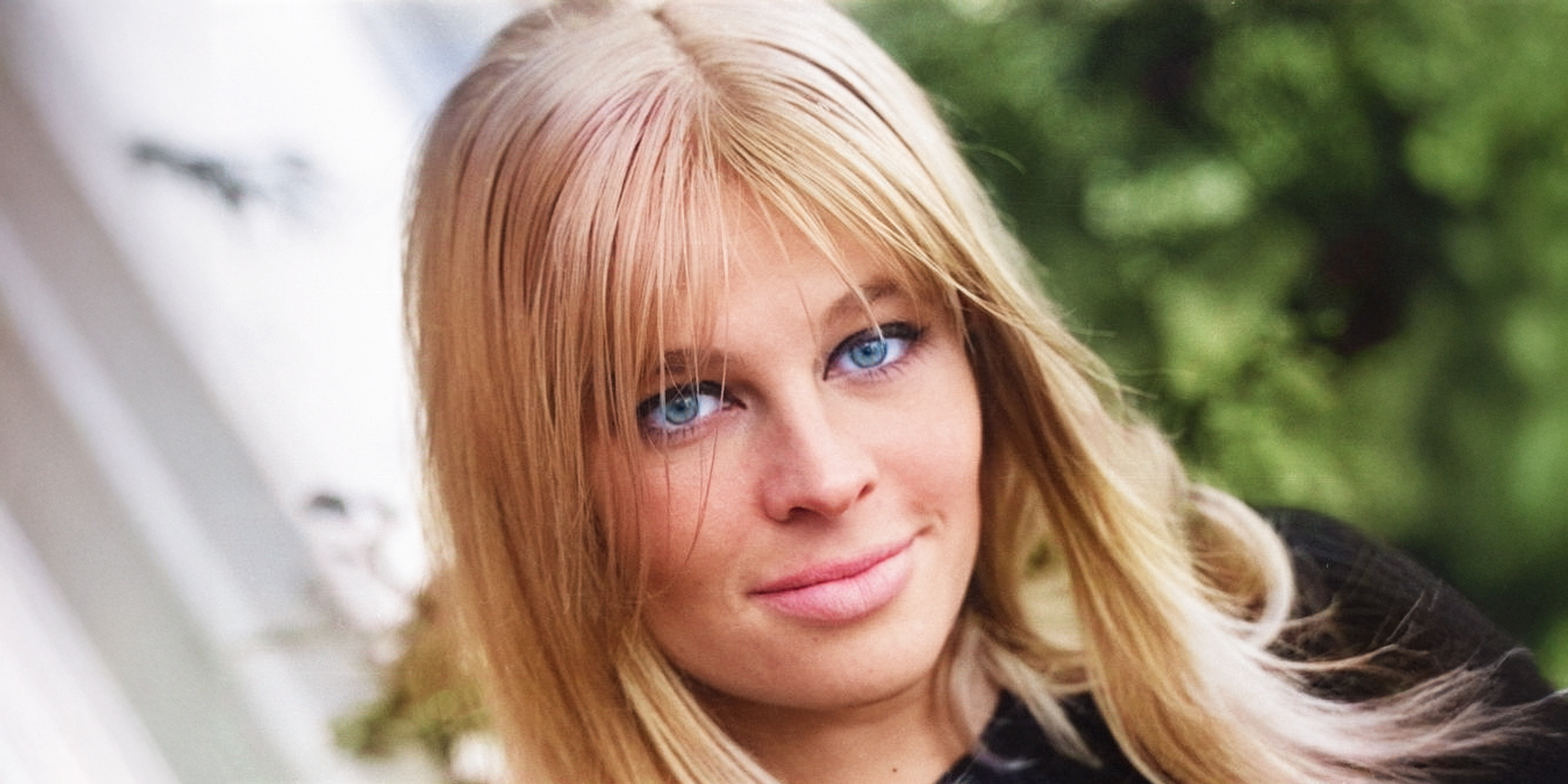
Her face graced the covers of magazines, and her name was synonymous with the glamour and allure of 1960s and 1970s cinema. But behind the glittering façade, this Oscar-winning actress harbored a deep discomfort with the industry’s relentless focus on her looks and a personal quest for privacy.
The actress stood out not only for her acting prowess but also for her profound impact on popular culture. Born in colonial India and thrust into the limelight in the 1960s, she delivered a string of unforgettable performances, including an Oscar-winning role. Her work established her as one of the most versatile actresses of her generation.
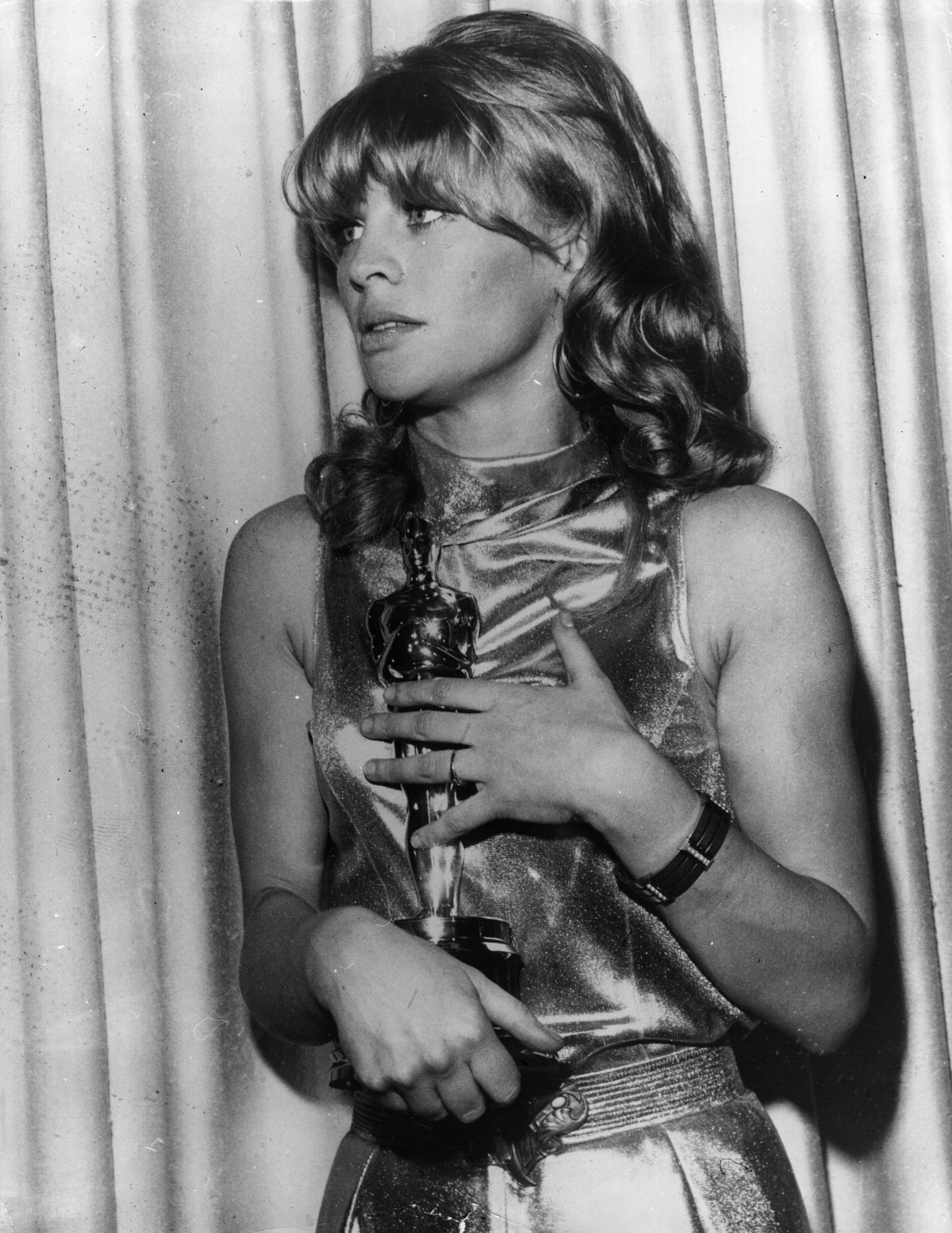
The actress poses with the Academy Award she won in 1965 | Source: Getty Images
As her career blossomed, so did the public fascination with her personal life. Her relationship with a Hollywood heartthrob turned the pair into one of the most glamorous couples of the era. By the late 1970s, she made the bold decision to leave Hollywood, retreating to a quiet life in rural Wales.
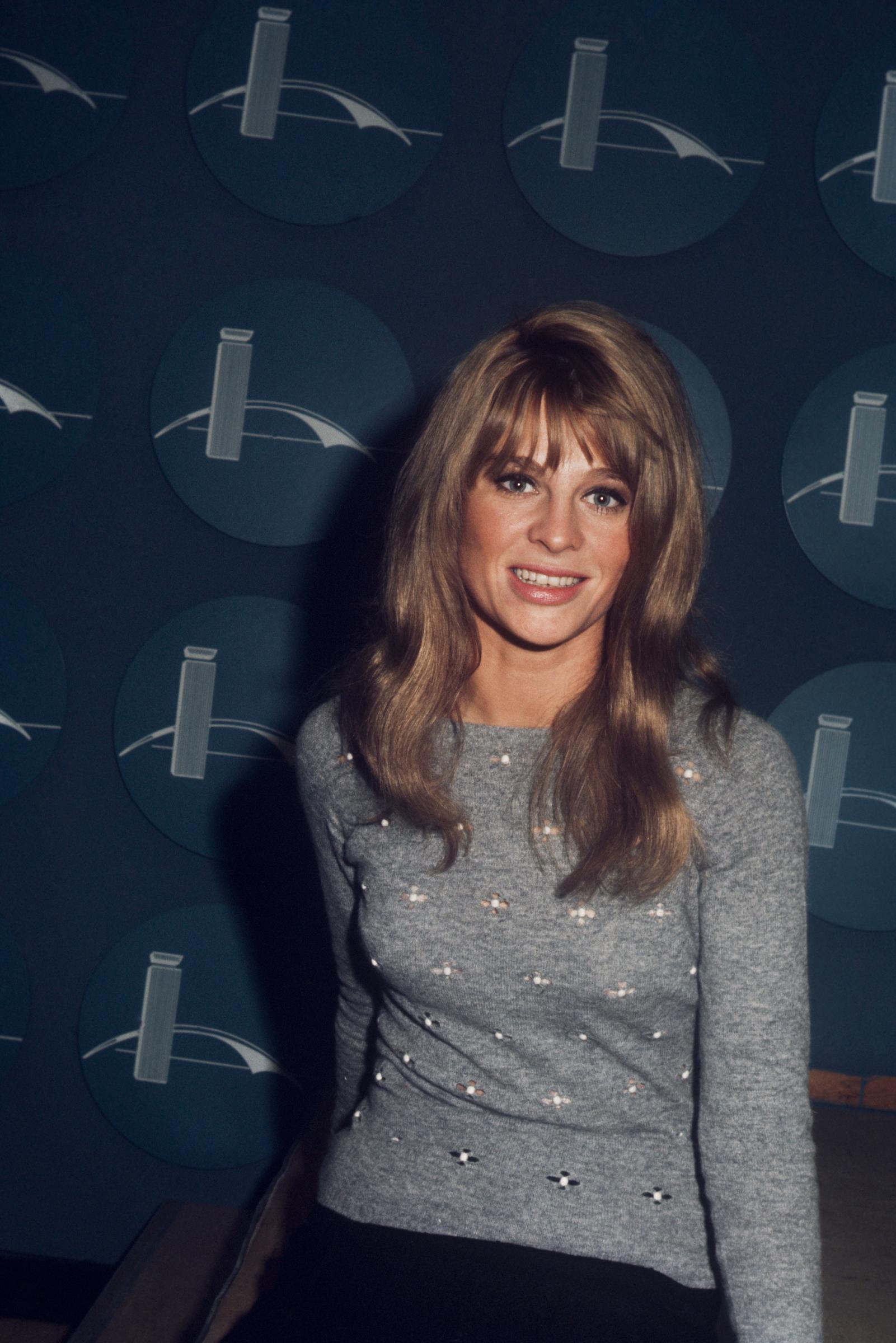
The actress, circa 1970 | Source: Getty Images
From Tea Plantations to the Academy Awards
Born on April 14, 1940, in Assam, India, she spent her formative years on a tea plantation managed by her father. Her early childhood in colonial India was idyllic yet brief, as upheaval soon disrupted her young life. At six, her parents sent her to England, which marked the beginning of a difficult transition.
The transition from the lush landscapes of Assam to the rigid environment of a Catholic boarding school in England proved traumatic. She despised the school’s strictness and the separation from her parents, and her rebellious streak soon became evident.
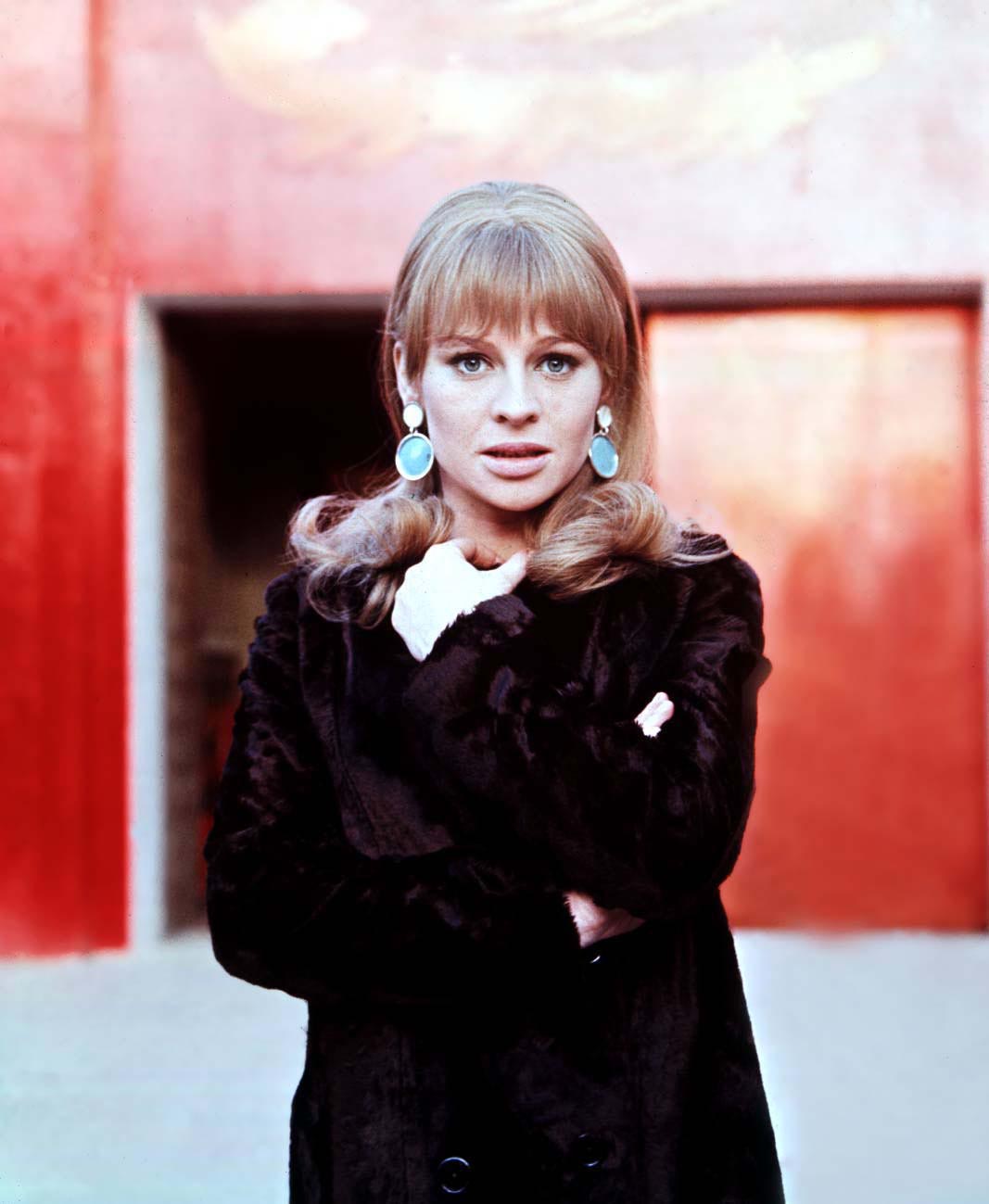
The actress poses on January 6, 1967 | Source: Getty Images
She was ultimately expelled from secondary school for telling a risqué joke—a boldness that hinted at the independence she would later embody in her life and career. The challenges of her childhood extended beyond her schooling.
Her parents’ separation and her father’s early death left her without a stable family life and her mother eventually relocated to rural Wales. Despite these struggles, her talent and determination catapulted her into the entertainment industry.
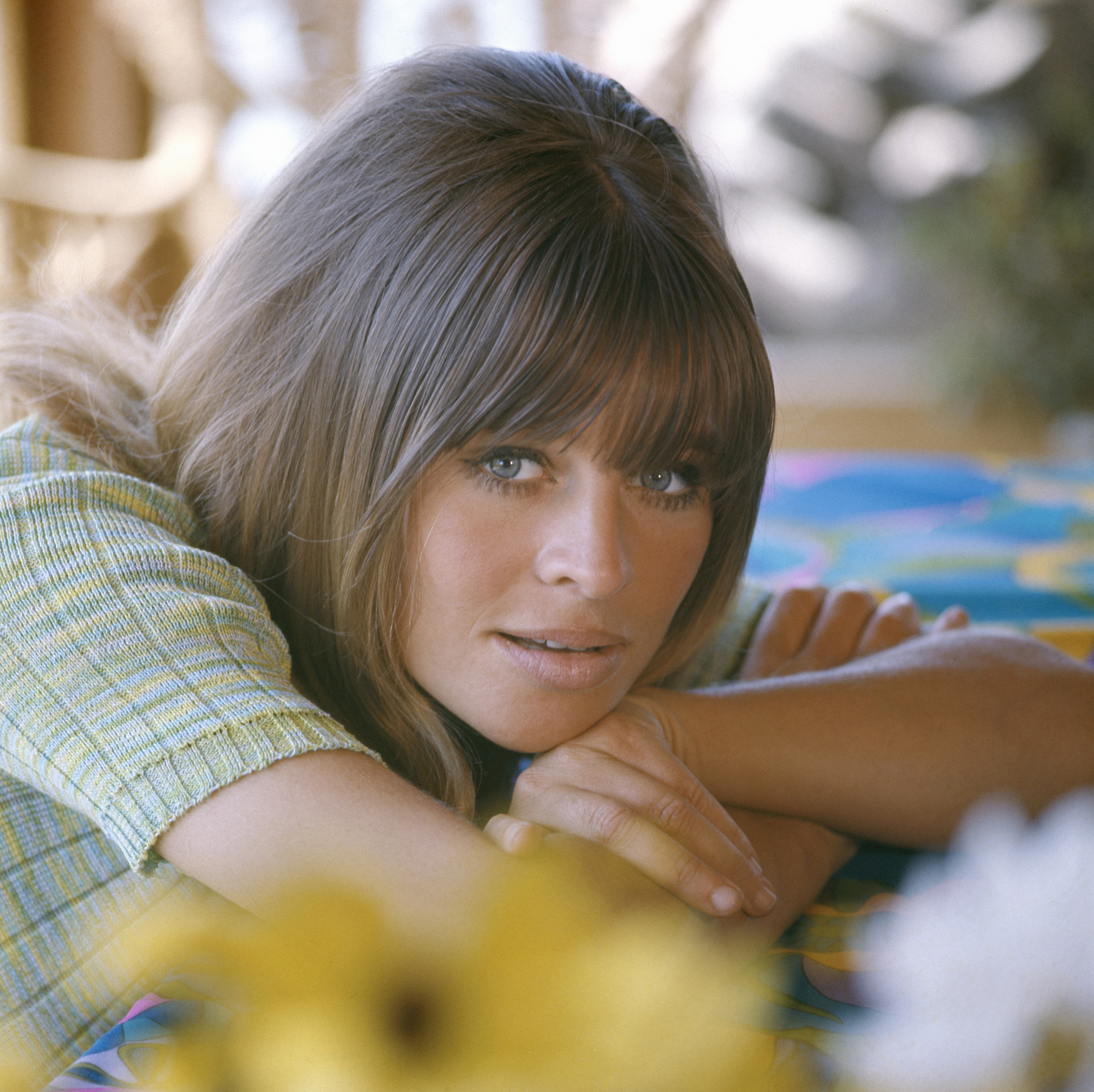
A close up portrait of the actress, circa 1968 | Source: Getty Images
Her breakthrough came in the 1960s with “Darling,” where she portrayed a morally ambiguous model navigating the seductive yet treacherous world of fame. The role resonated deeply with audiences and critics alike, earning her an Academy Award at just 24 years old.
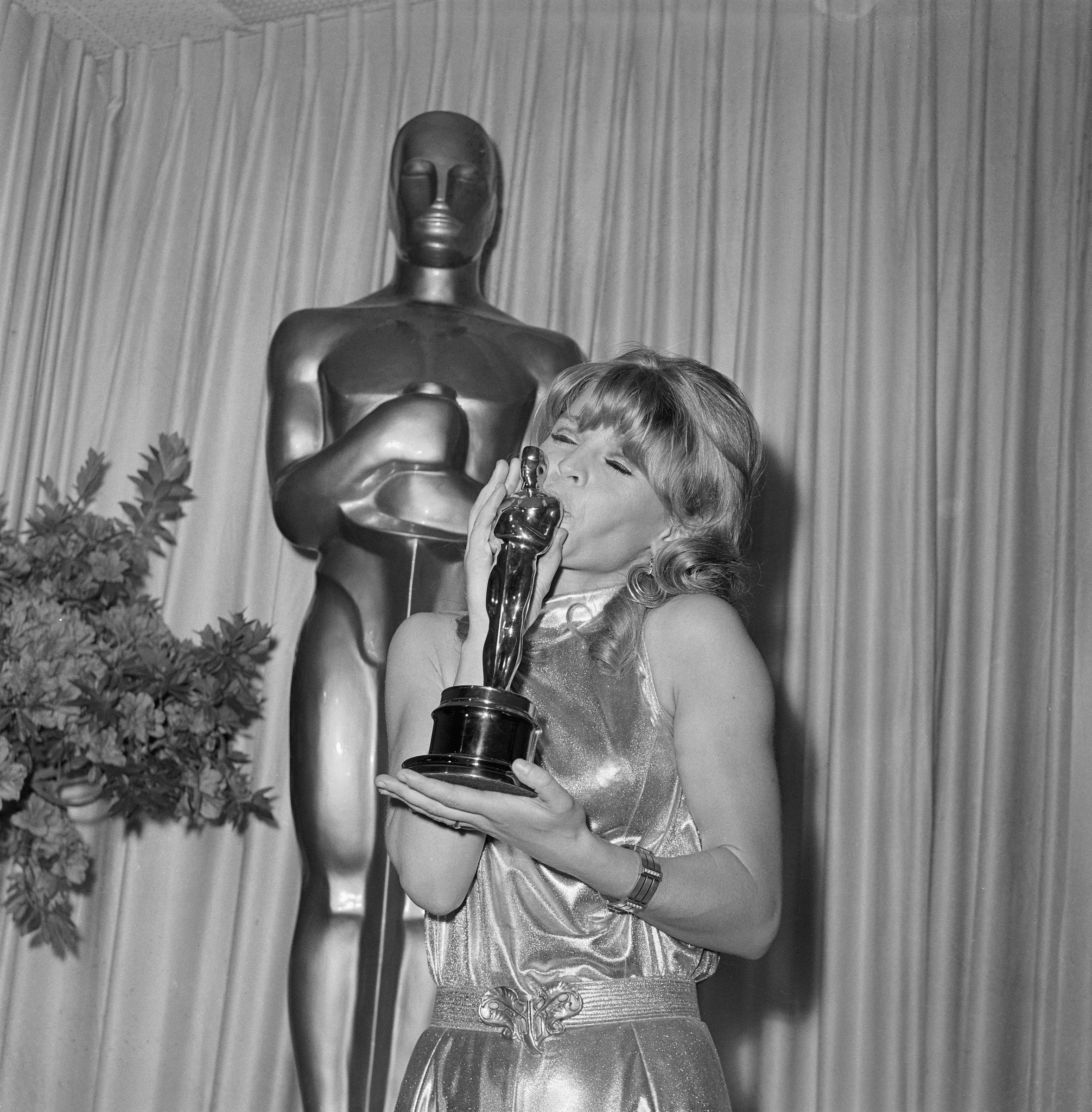
The actress kisses the Best Actress Oscar she won at the 38th Annual Academy Awards on April 18, 1966 | Source: Getty Images
Her subsequent performances in iconic films like “Doctor Zhivago” (1965) and “Fahrenheit 451” (1966) solidified her reputation as one of the most talented and bankable actresses of her time.
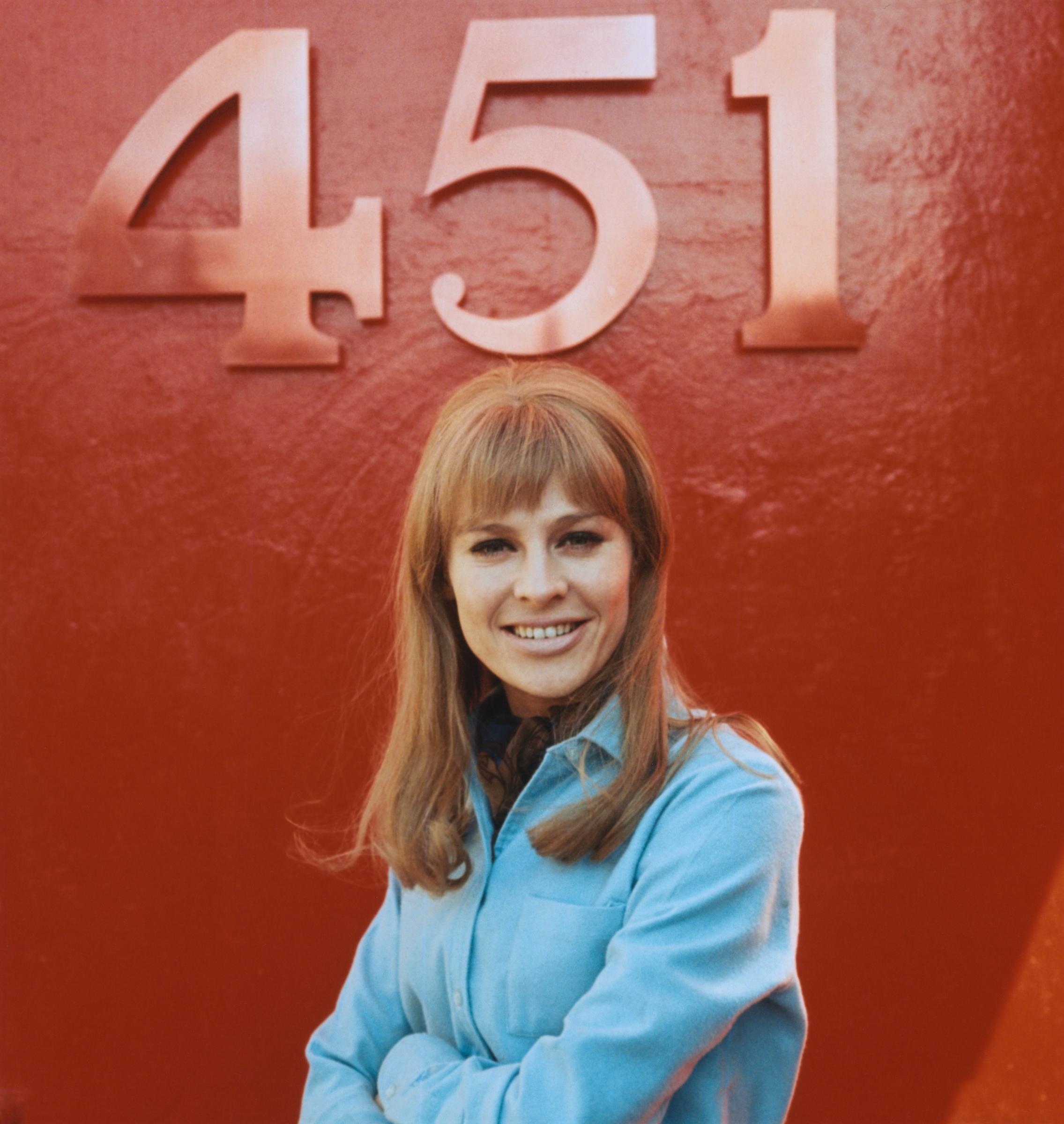
The talented actress pictured on the set of “Fahrenheit 451” in 1966 | Source: Getty Images
While her career soared, her personal life became equally captivating, particularly her romance with Warren Beatty, a relationship that defined much of her time in Hollywood.
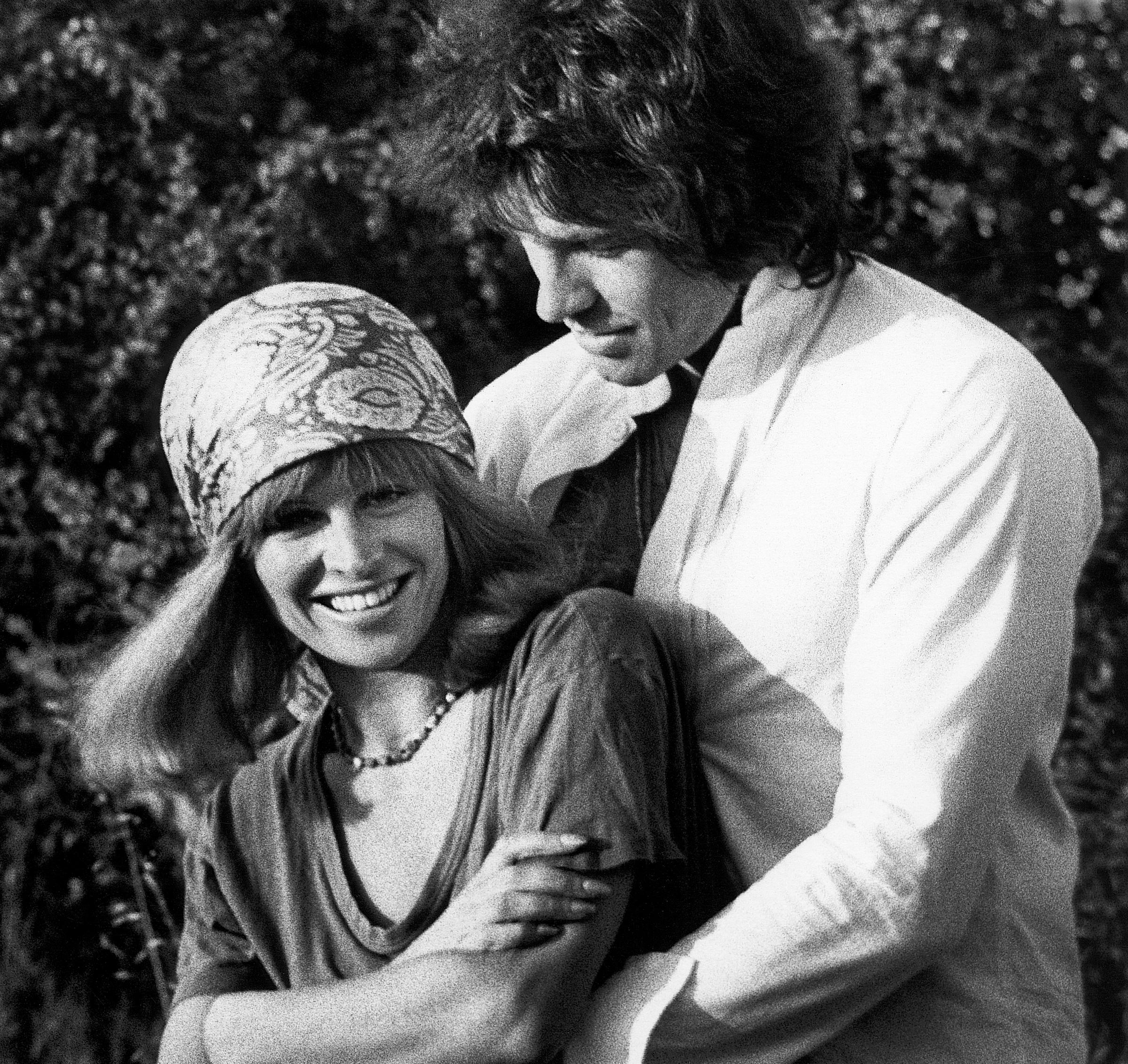
The actress poses with Warren Beatty in 1974 | Source: Getty Images
Hollywood’s Most Glamorous Couple
By 1965, her career was soaring, and it was during this time that she crossed paths with Beatty, one of Hollywood’s most magnetic leading men. Their romance quickly became the centerpiece of Hollywood gossip columns, lasting seven tumultuous years.
Together, they were hailed as the golden couple of the 1960s and 1970s, their every appearance sparking headlines and public fascination. Beatty, known for his charm and ambition, was as enamored with her as the world was.
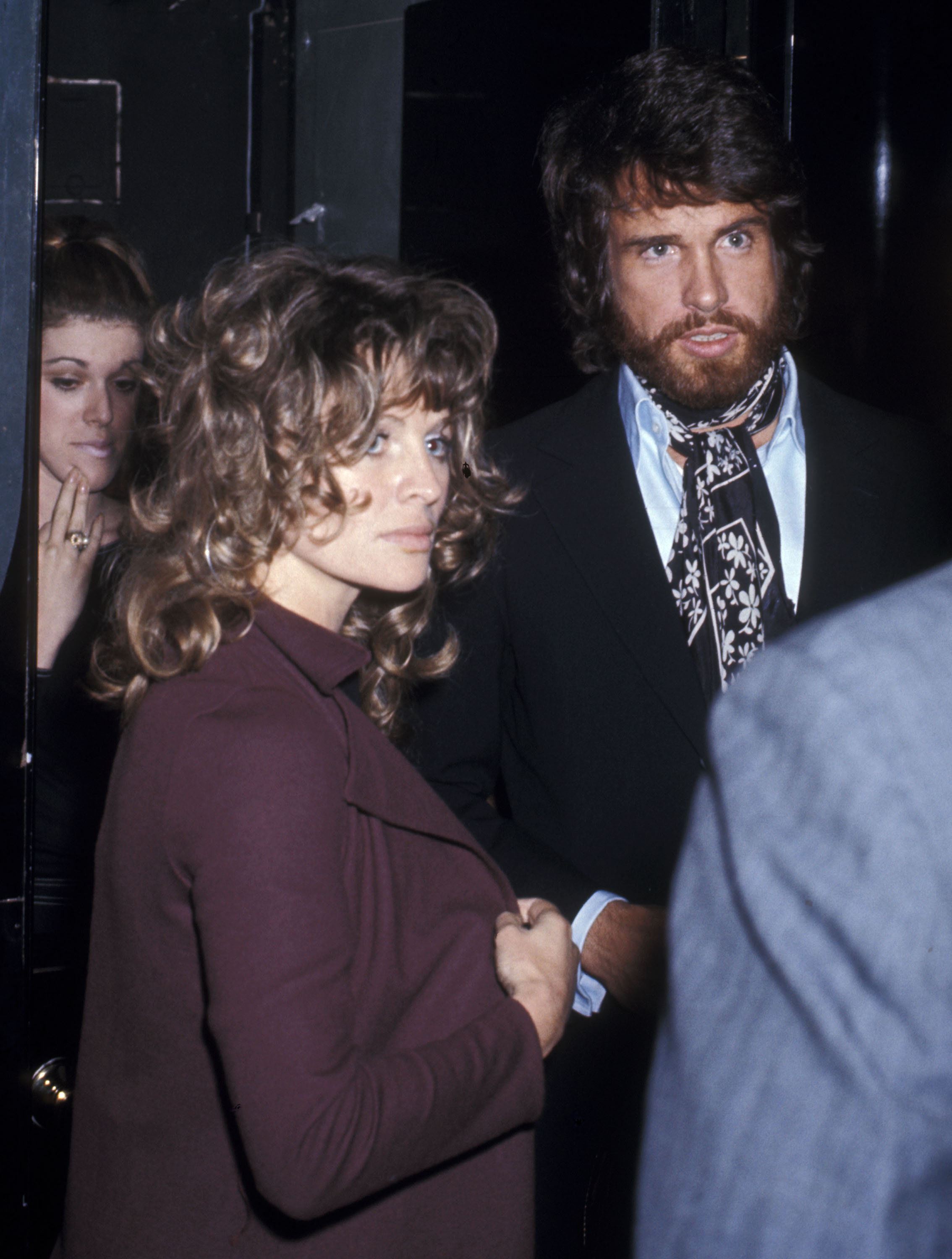
The actress pictured with Warren Beatty, circa 1970 | Source: Getty Images
He described her as “the most beautiful and at the same time the most nervous person [he] had ever known.” Their connection was not only romantic but also intellectual. She credited Beatty with introducing her to a more politically engaged worldview, admiring his boldness in addressing controversial issues like gun control.
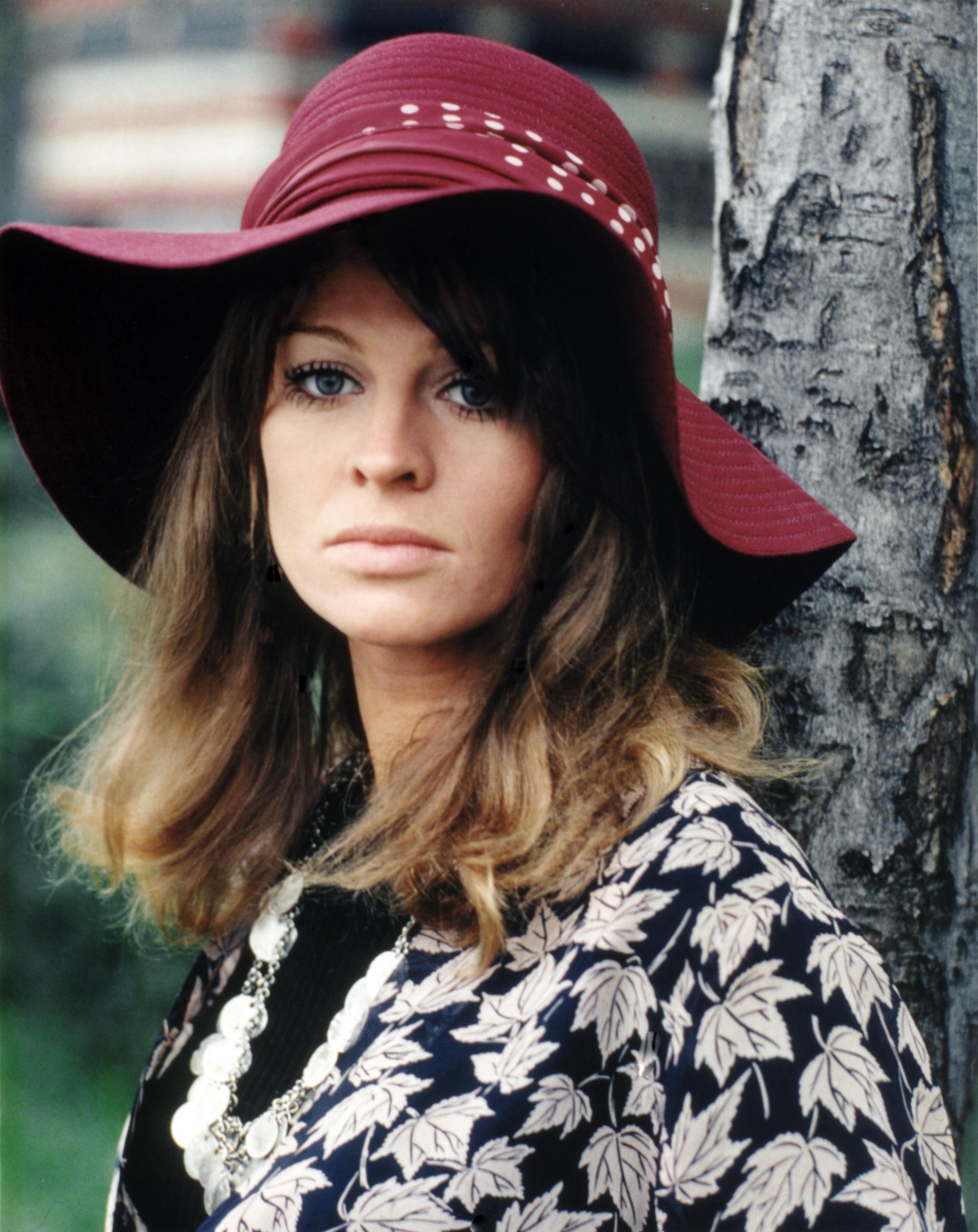
Undated photo of the actress | Source: Getty Images
She often recalled watching him speak to vast crowds, even in unconventional venues like baseball stadiums, where he would address crowds between innings. The depth of their bond was immortalized when Beatty dedicated his critically acclaimed 1981 political epic Reds “To Jules.”
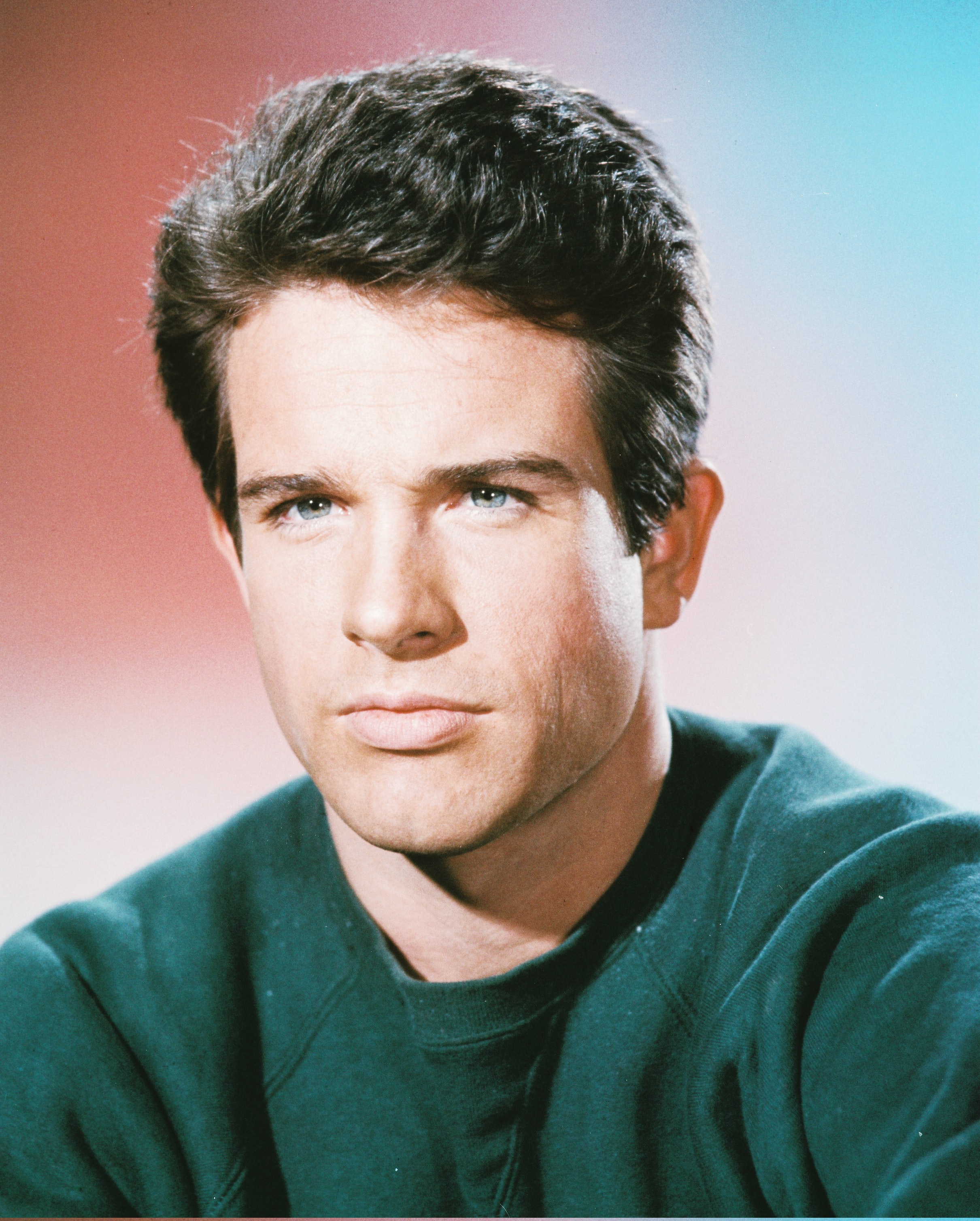
Warren Beatty poses for a studio portrait, circa 1975 | Source: Getty Images
This dedication spoke to the significant impact she had on his life, even after their romantic relationship had ended. Yet, while their relationship captivated the public, it also had its challenges. She was deeply private and grew uncomfortable with the relentless media attention that followed their every move.
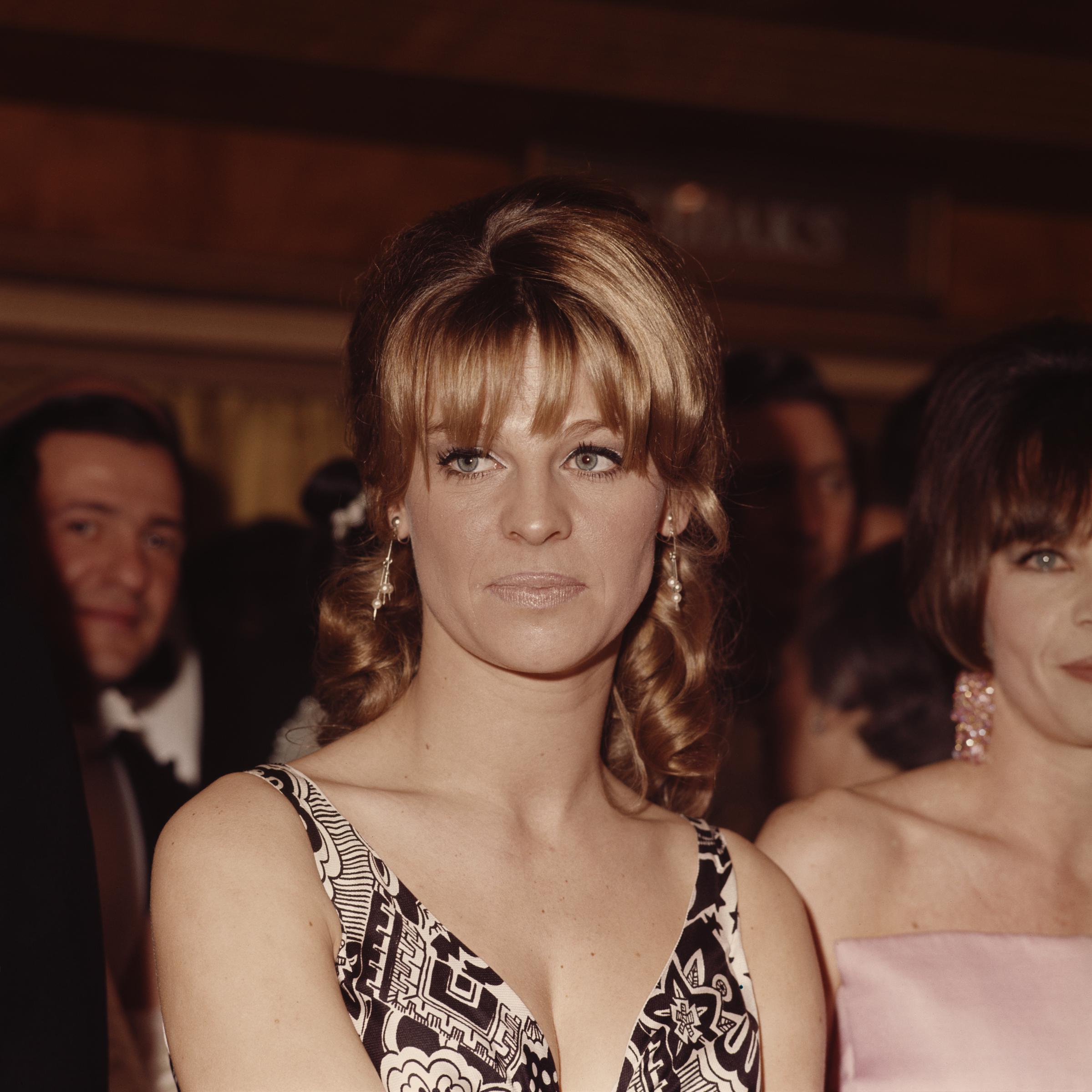
The actress at the Odeon Leicester Square on March 14, 1966 | Source: Getty Images
The pressure of being under constant scrutiny exacerbated her already growing unease with fame and Hollywood’s fixation on her personal life. This discomfort with fame and its intrusions would soon contribute to her growing disillusionment with Hollywood.
As her personal life became the subject of public obsession, her career continued to flourish, but the pressures of fame began to take their toll.
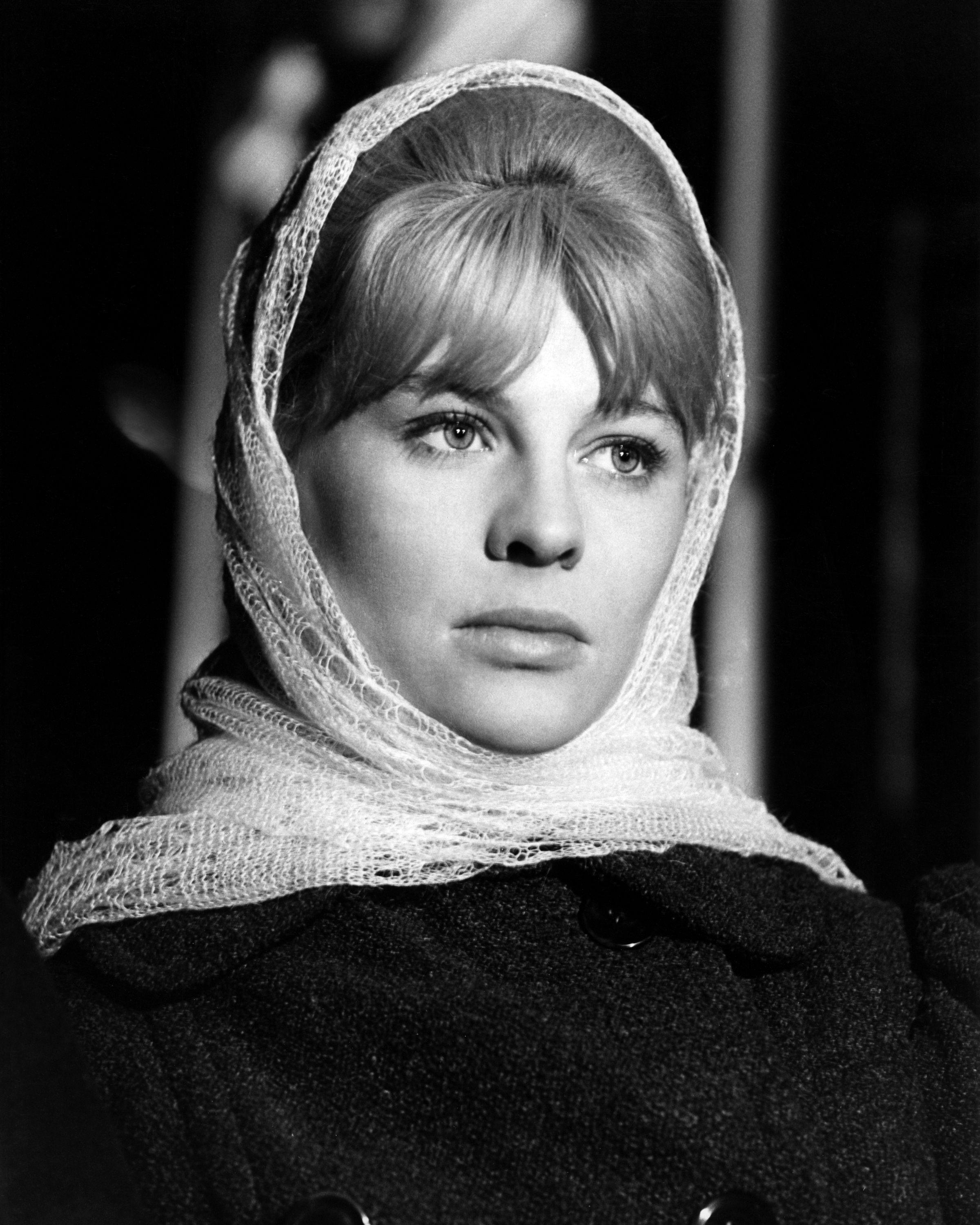
The actress as Lara Antipova in “Doctor Zhivago” in 1965 | Source: Getty Images
The Pressures of Beauty and Fame
As the 1960s transitioned into the 1970s, she remained a celebrated figure, known as much for her striking beauty as for her acting talent. Critics and audiences adored her performances in films like “Don’t Look Now” (1973), but the public’s fixation on her appearance began to overshadow her craft.
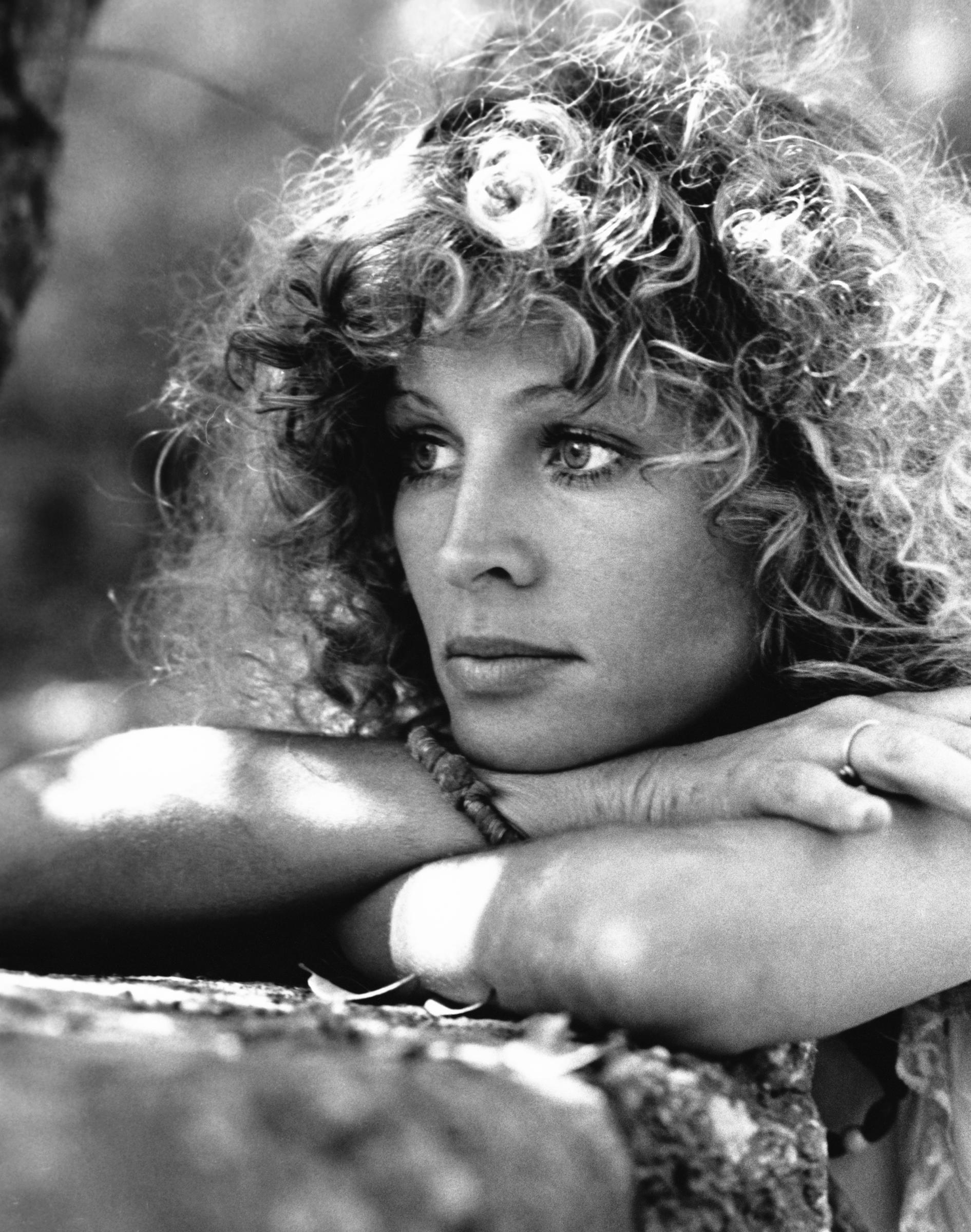
A portrait of the actress, dated 1974 | Source: Getty Images
Time Magazine famously declared, “What [she] wears has more real impact on fashion than all the clothes of the 10 Best-Dressed women combined.” For many, she was not just an actress but a cultural phenomenon, a face that defined a generation.
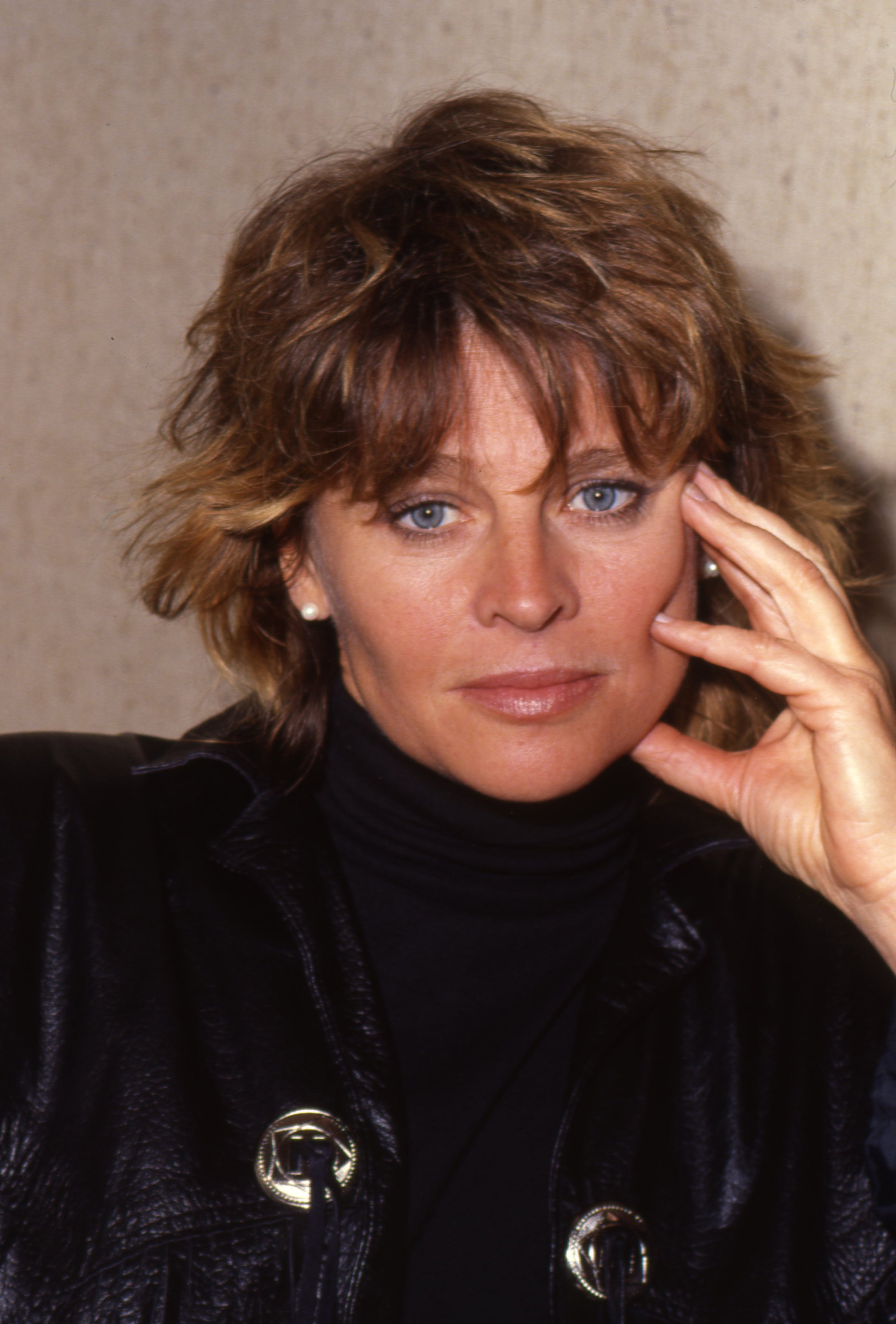
The actress poses, circa 1985 | Source: Getty Images
Yet, for this actress, this relentless attention was a double-edged sword. While the accolades poured in, she felt increasingly trapped by the industry’s superficial focus. She had become a symbol of glamour, but the label came at the cost of being seen as a serious artist.
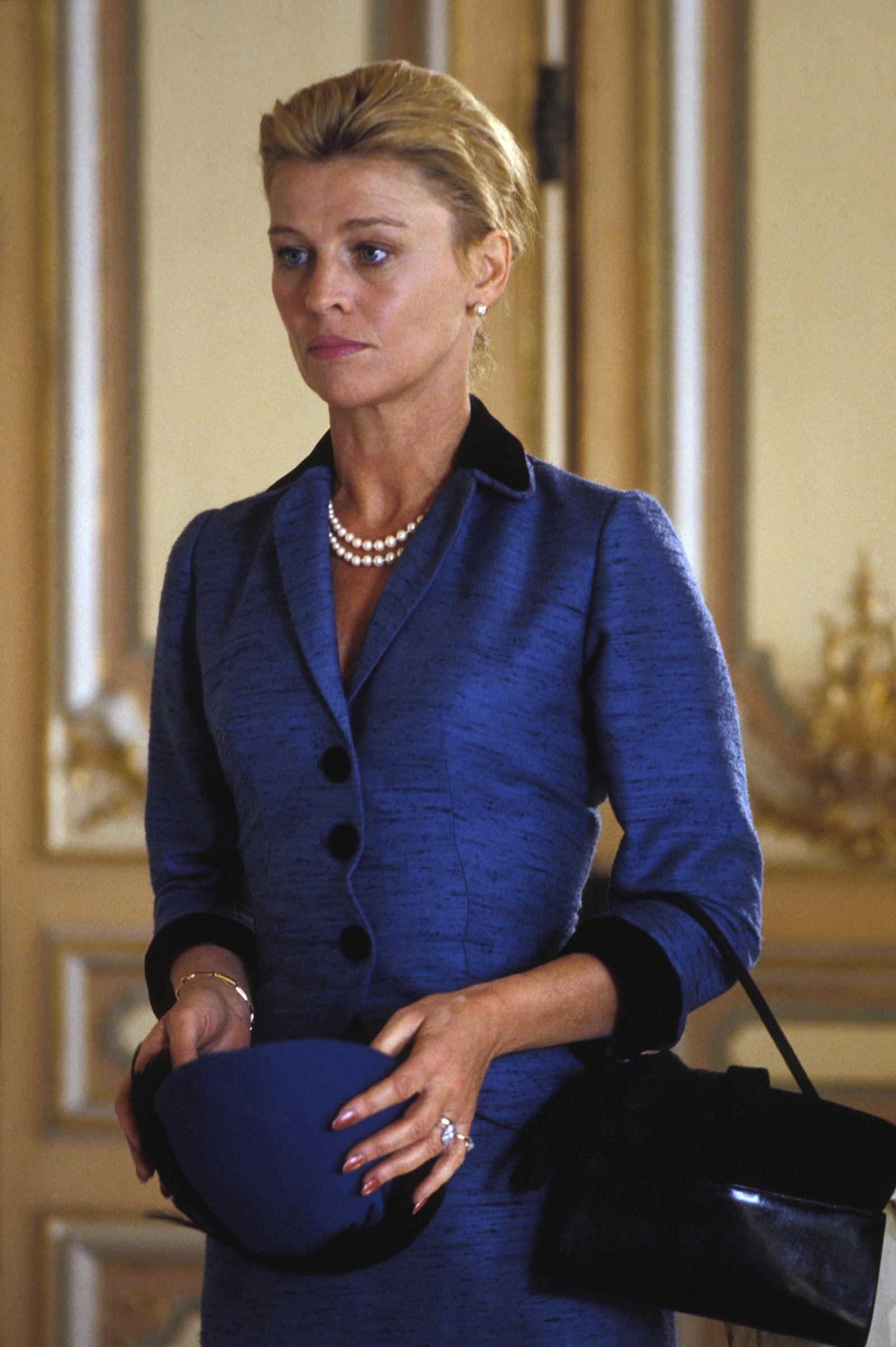
The former actress is photographed on a film set in 1985 | Source: Getty Images
She described fame as “having chewing gum in your hair always,” an irritation that she couldn’t escape. Her discomfort with stardom was further exacerbated by incidents that underscored how fame distorted her reality.
In one instance, during an interview at a friend’s home, a journalist fabricated a narrative that painted her as pampered and aloof. Though her friend had kindly brought sandwiches to the interview, the journalist wrote that “[Her] maid came in with sandwiches,” painting an entirely false narrative of luxury and indulgence.
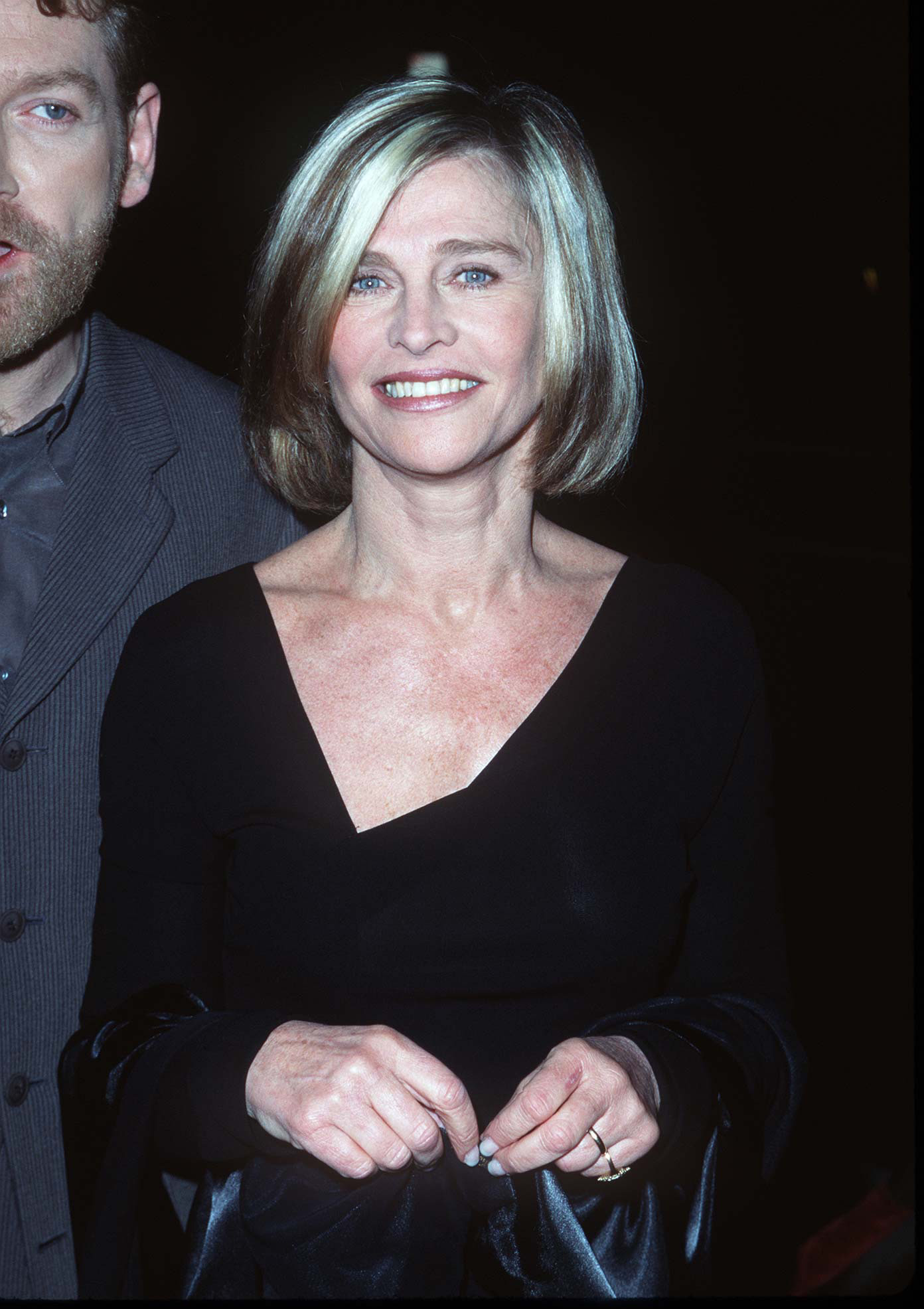
The former actress attends the “Hamlet” premiere in 1996 | Source: Getty Images
This experience, among others, left her disillusioned with the media and wary of the spotlight. The pressure to maintain her image and the constant intrusion into her personal life weighed heavily on her.
Escaping the Spotlight
By the late 1970s, the decision to step away from Hollywood was not a whim but a carefully considered choice. The closest thing she had to a sense of home came from the summers she spent with her mother in rural Wales after returning from India as a child.
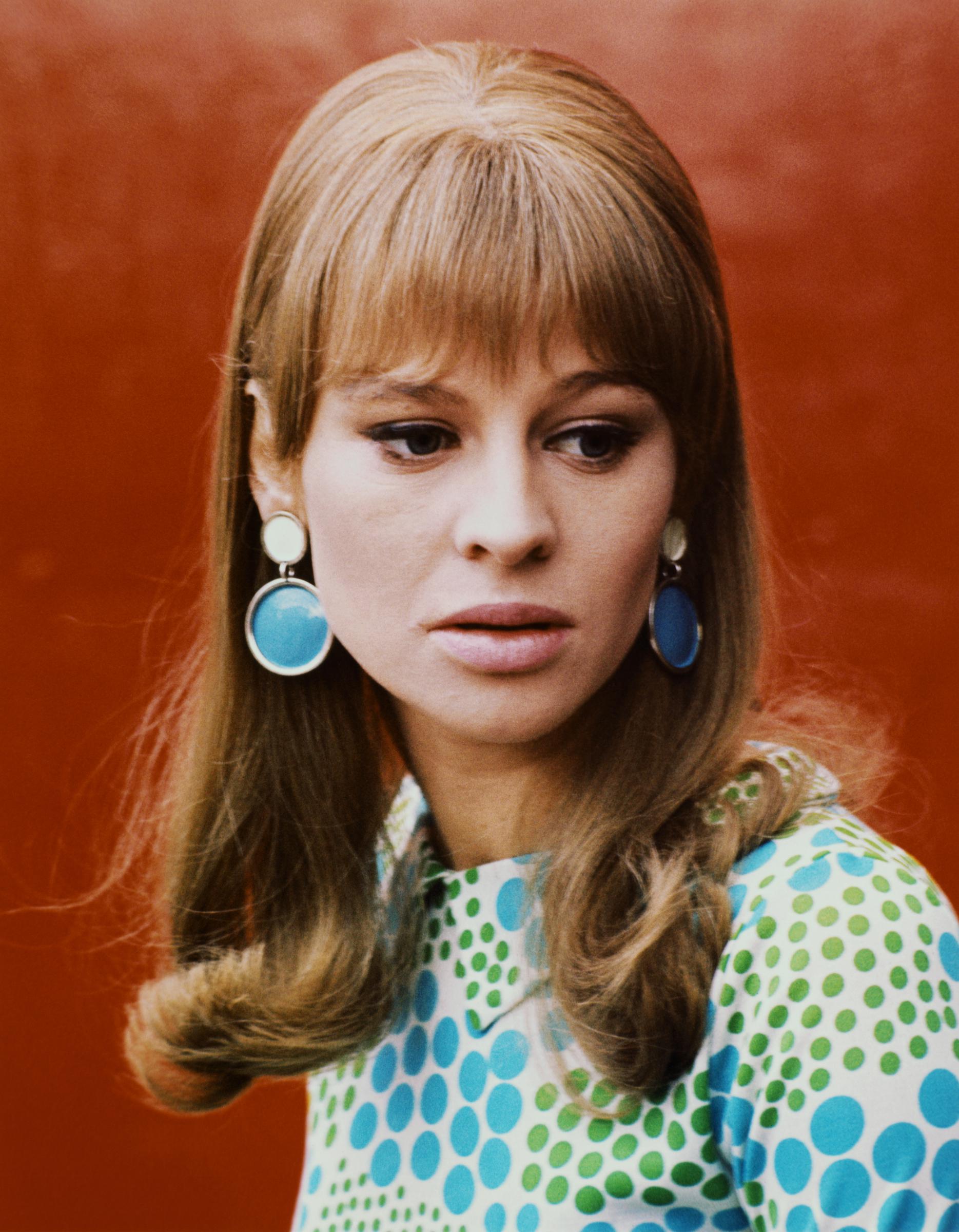
The former actress is photographed on set in 1966 | Source: Getty Images
Seeking solace and a return to simplicity, she purchased a modest farm near Montgomery, North Wales, where she could escape the relentless pressures of fame. Her departure was not just physical but also ideological.
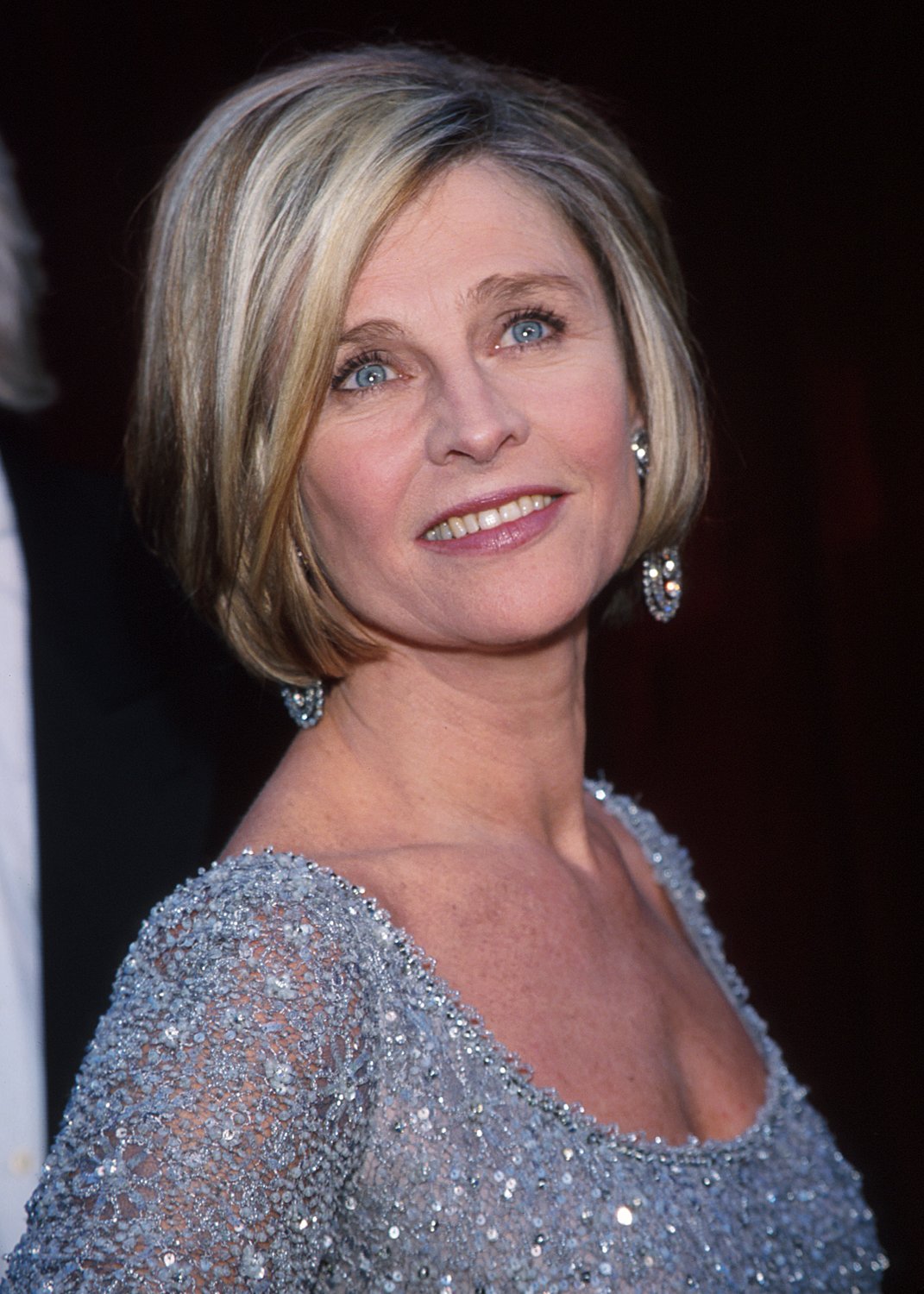
The former actress attends the 70th Annual Academy Awards in 1998 | Source: Getty Images
She referred to it as a process of “de-celebritization,” deliberately removing herself from the public eye and rejecting the celebrity culture. In Wales, she cultivated a quieter life, often hosting friends and immersing herself in nature and activism.
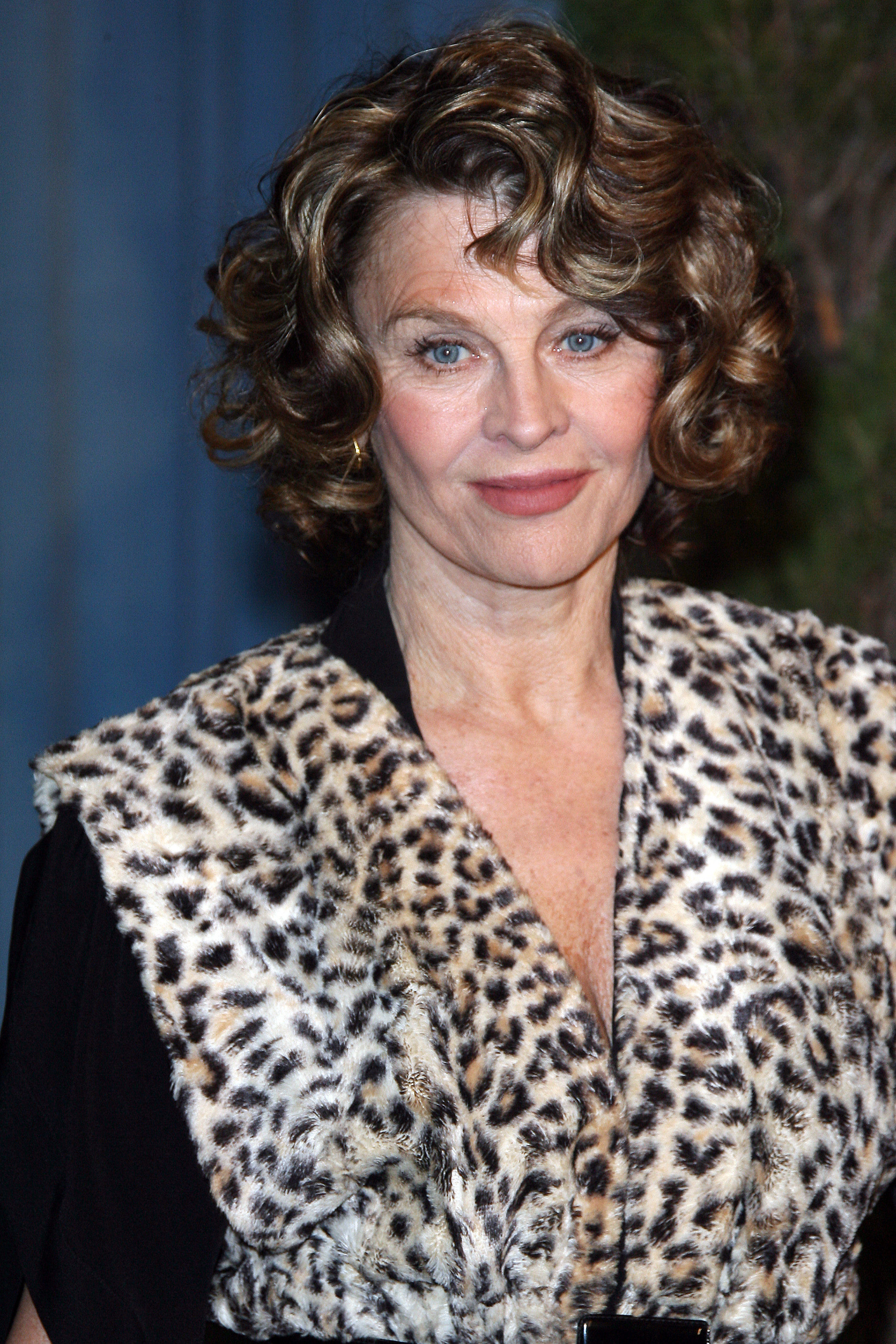
The actress arrives for the annual Academy nominees luncheon February 4, 2008 | Source: Getty Images
Despite her retreat, the former actress didn’t abandon her sense of responsibility to the world. Over the years, she became deeply involved in causes she believed in, including campaigns against nuclear waste and for animal rights.
Her most notable activism has been with the Medical Foundation for Victims of Torture, inspired by its founder, Helen Bamber. She speaks of Bamber with reverence, urging people to read her book and championing the organization’s mission to support those who had endured unimaginable suffering.
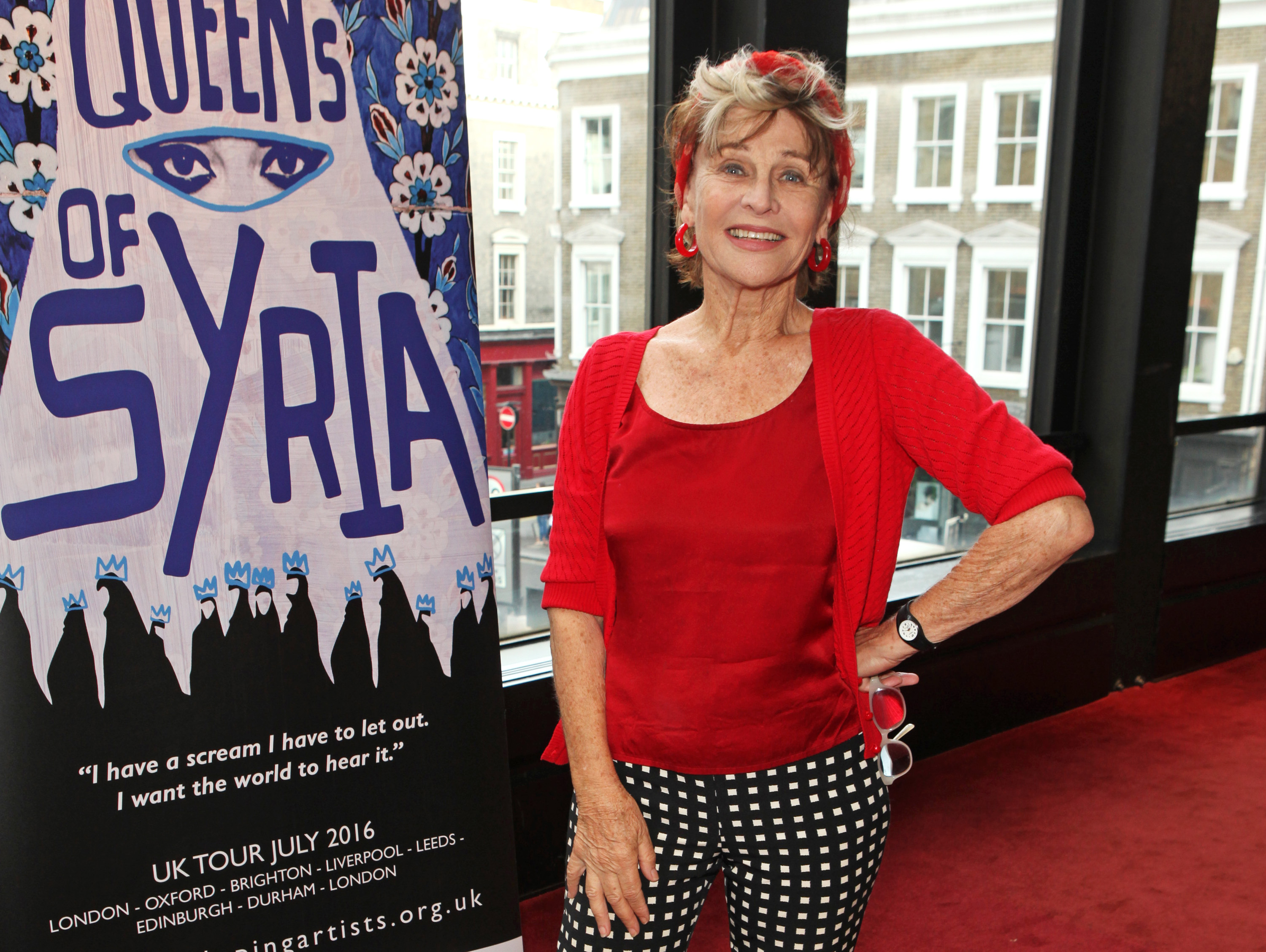
The actress attends the West End Gala performance of “Queens Of Syria” on July 24, 2016 | Source: Getty Images
Her life in Wales reflected a deliberate departure from the extravagance of Hollywood. Her decision to leave behind her career in favor of a simpler, values-driven existence offered her a sense of peace that Hollywood never could.

The former actress speaks during the 2021 Rugby World Cup Launch Event on February 4, 2020 | Source: Getty Images
Beauty, Aging, and Criticism
Though she left Hollywood behind, Julie Christie couldn’t entirely escape the pressures tied to her image. As someone who had been celebrated as the face of a generation, she faced the inevitable challenges of aging in an industry—and a society—that prized youth and beauty above all else.
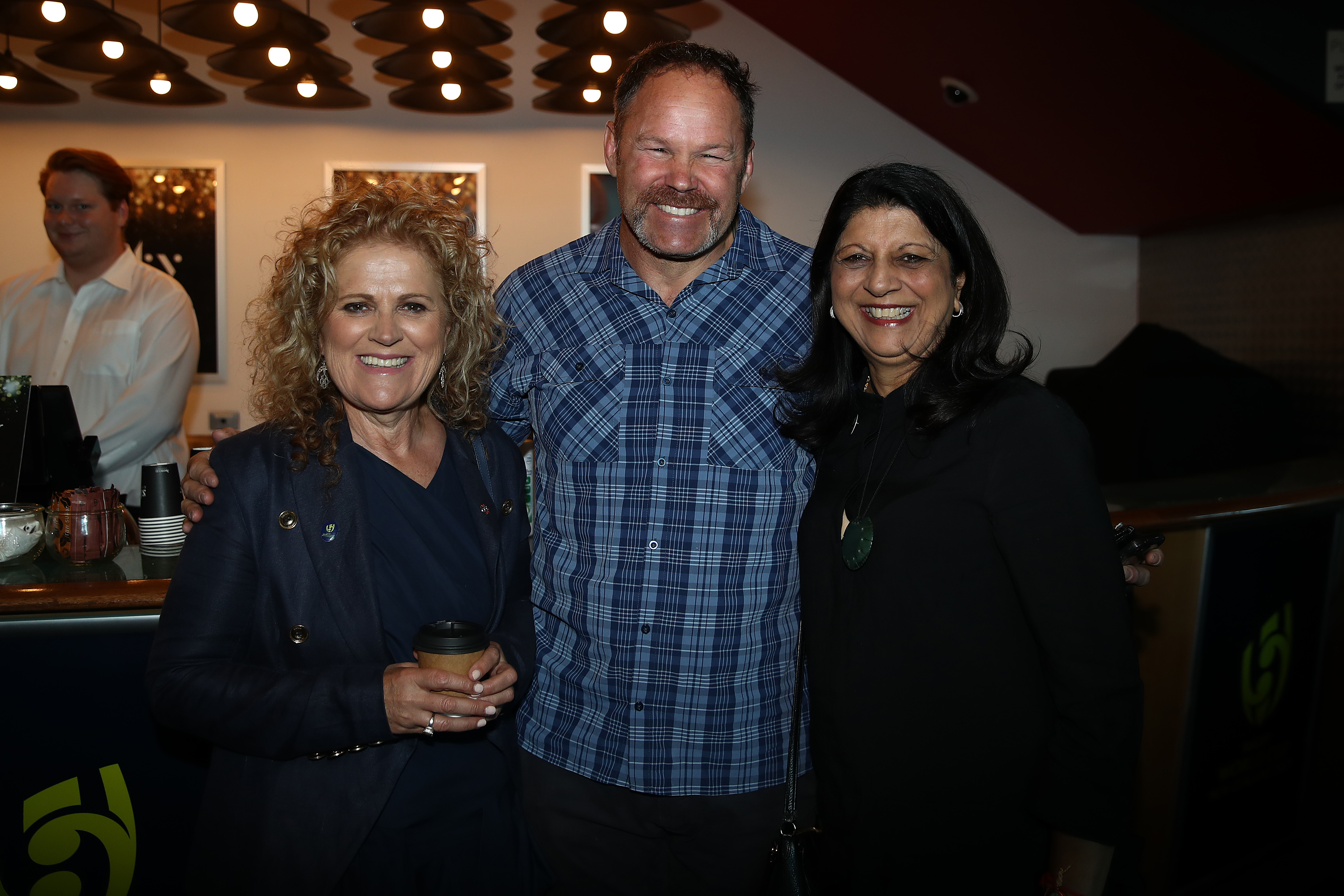
Julie Christie poses with friends during the Rugby World Cup 2021 Draw event on February 4, 2020 | Source: Getty Images
At 65, Christie reflected on how her changing appearance shaped her identity. “I know what I look like—then I look in the mirror and don’t look like that person. I think, ‘I don’t know who that is,'” she said. She also revealed that, despite her retreat from the spotlight, the pressures of beauty standards still lingered.

The actress (dressed in red) pictured on May 4, 2022 | Source: Getty Images
In her forties, Christie underwent minor cosmetic surgery, describing how her “reptilian layer of skin folds” around her eyes had made her feel self-conscious. “We communicate so much with our eyes,” she admitted.
This decision sparked backlash, particularly from feminist circles, where she was accused of “betraying” the ideals of body positivity and self-acceptance.
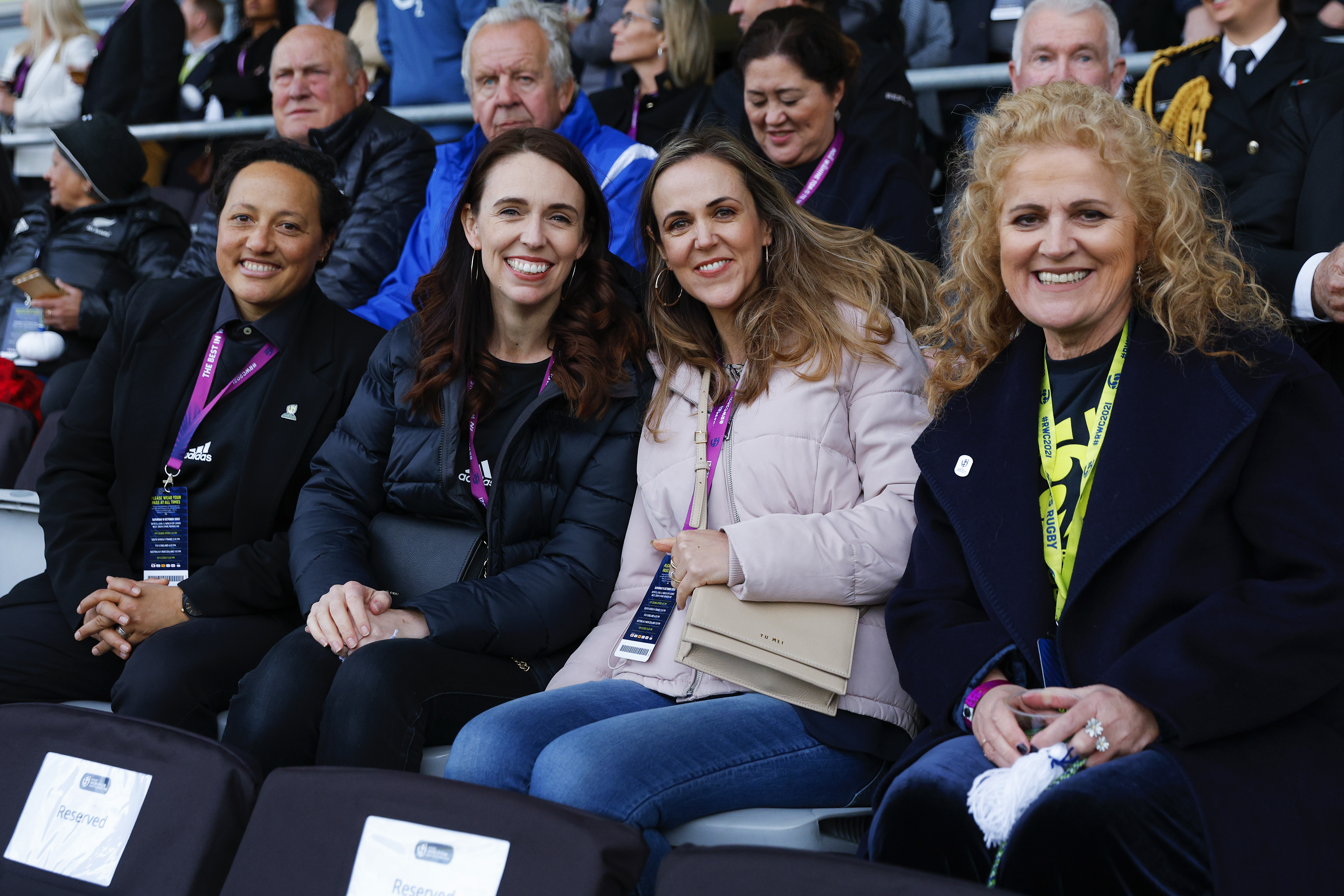
Julie Christie poses with friends on October 8, 2022 | Source: Getty Images
Unapologetic, she defended her choice by pointing out the realities of existing in a culture obsessed with youth—especially for women in Hollywood.
“We are all dealing with changes in that way, over a certain age,” she explained. “We watch our skin change, and I don’t think that’s such an easy thing to do.”
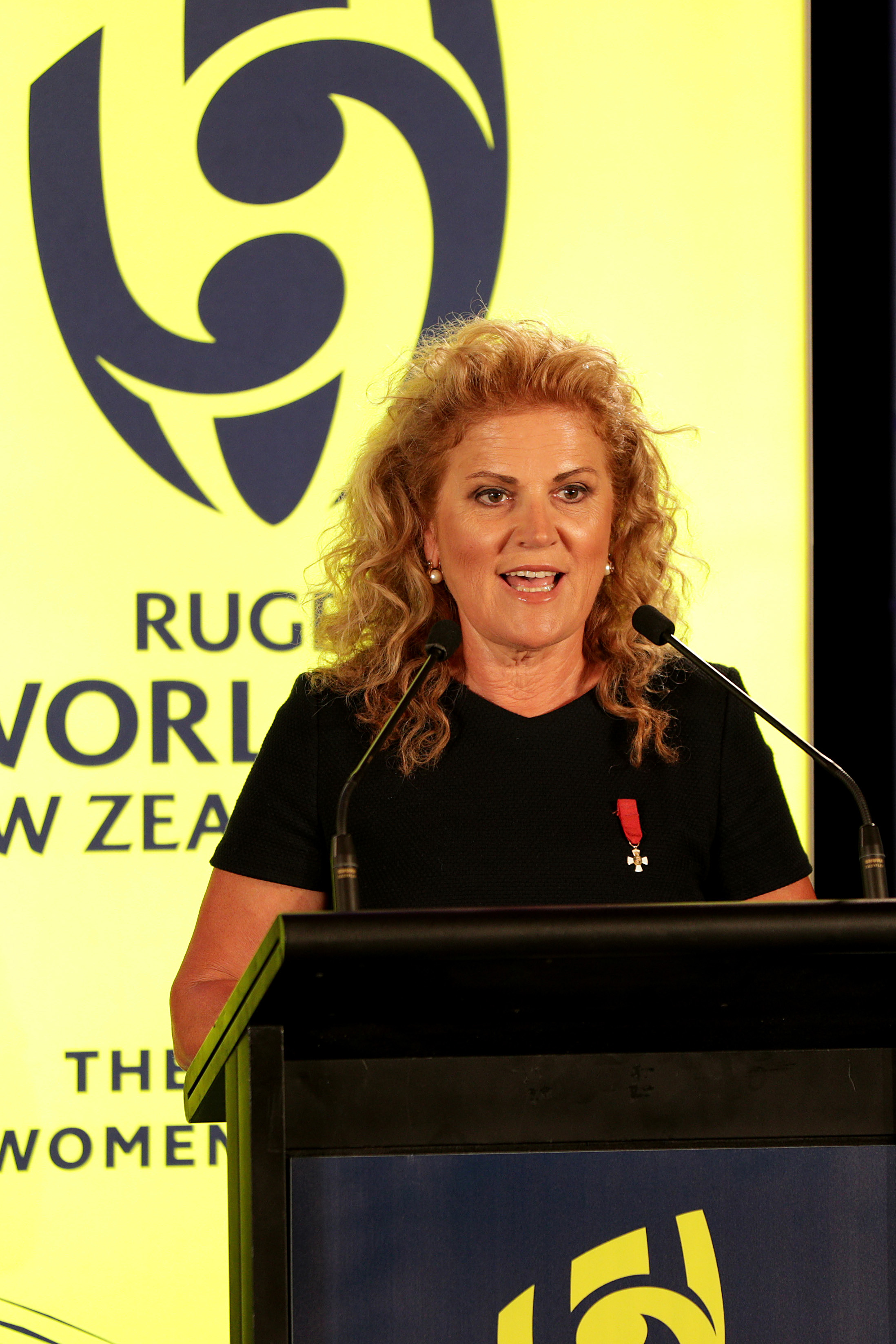
Julie Christie speaks during the 2021 Rugby World Cup Launch Event on February 4, 2020 | Source: Getty Images
She also lamented the lack of opportunities for older women in Hollywood, noting that the industry was “still a very male world.” Her fans, however, have always celebrated her timeless beauty. As one admirer commented online Christie is “One of the most beautiful actresses in the movies’ history.”
Another added, “This woman was/is just one of the most gorgeous women in film. Absolutely beautiful then and still beautiful today.” While scripts rarely offered her substantial roles, she occasionally returned to acting, gravitating toward characters that embraced complexity and imperfection.
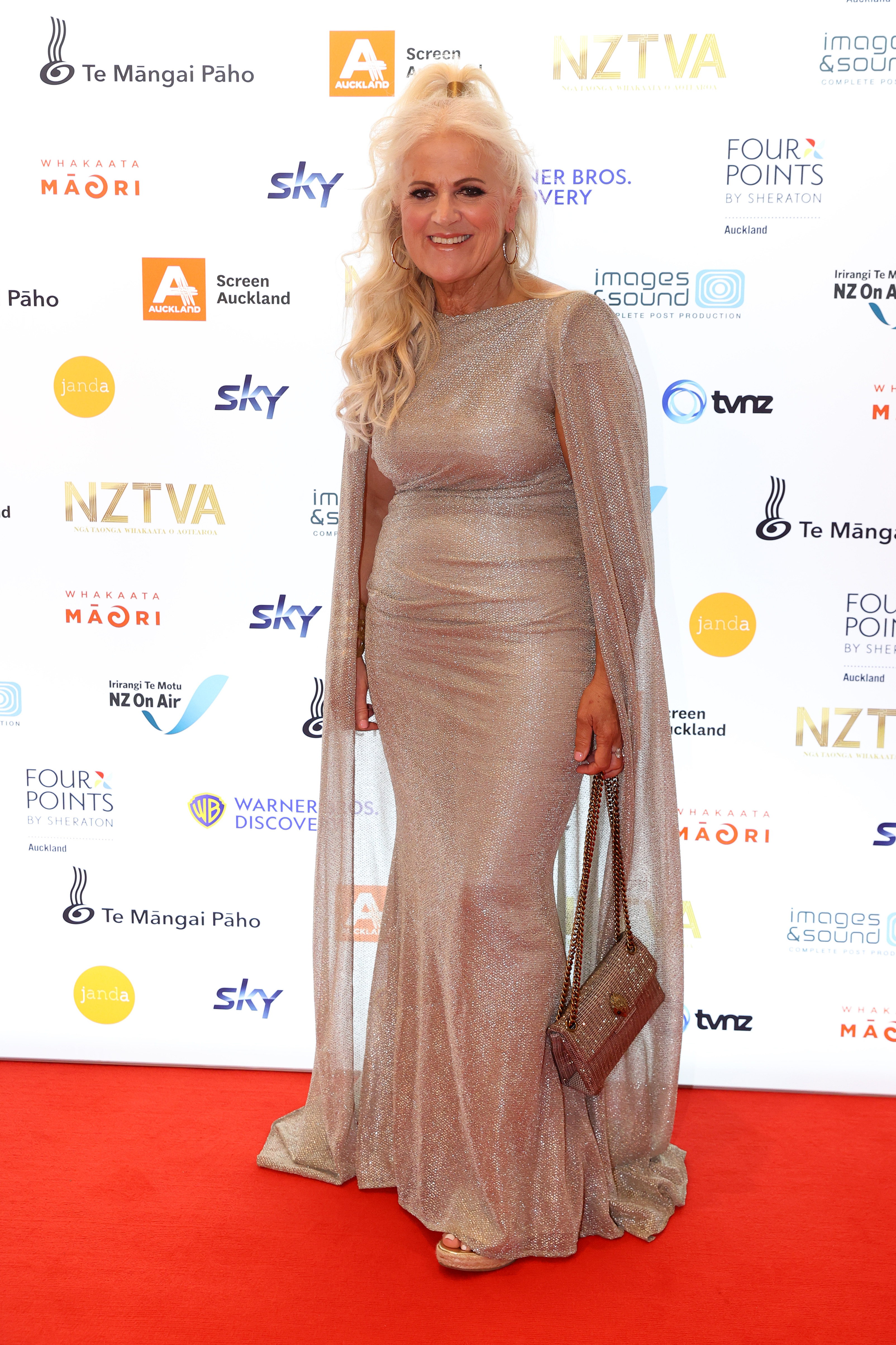
Julie Christie attends the 2024 New Zealand Television Awards on November 22, 2024 | Source: Getty Images
“I really enjoyed playing people who have lost their marbles,” she once said. Even in her eighties and further removed from the public eye, her influence on Hollywood and her commitment to her values remain undeniable.